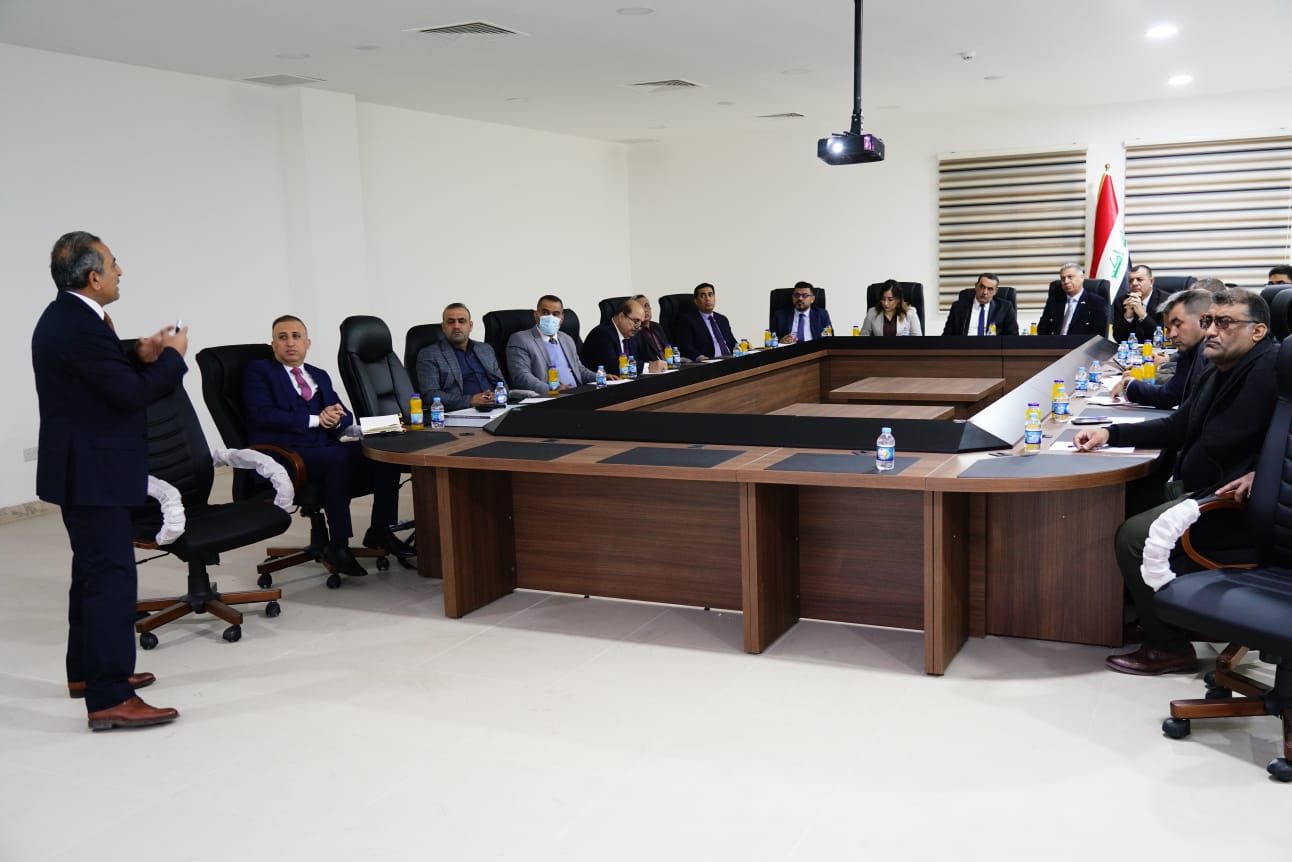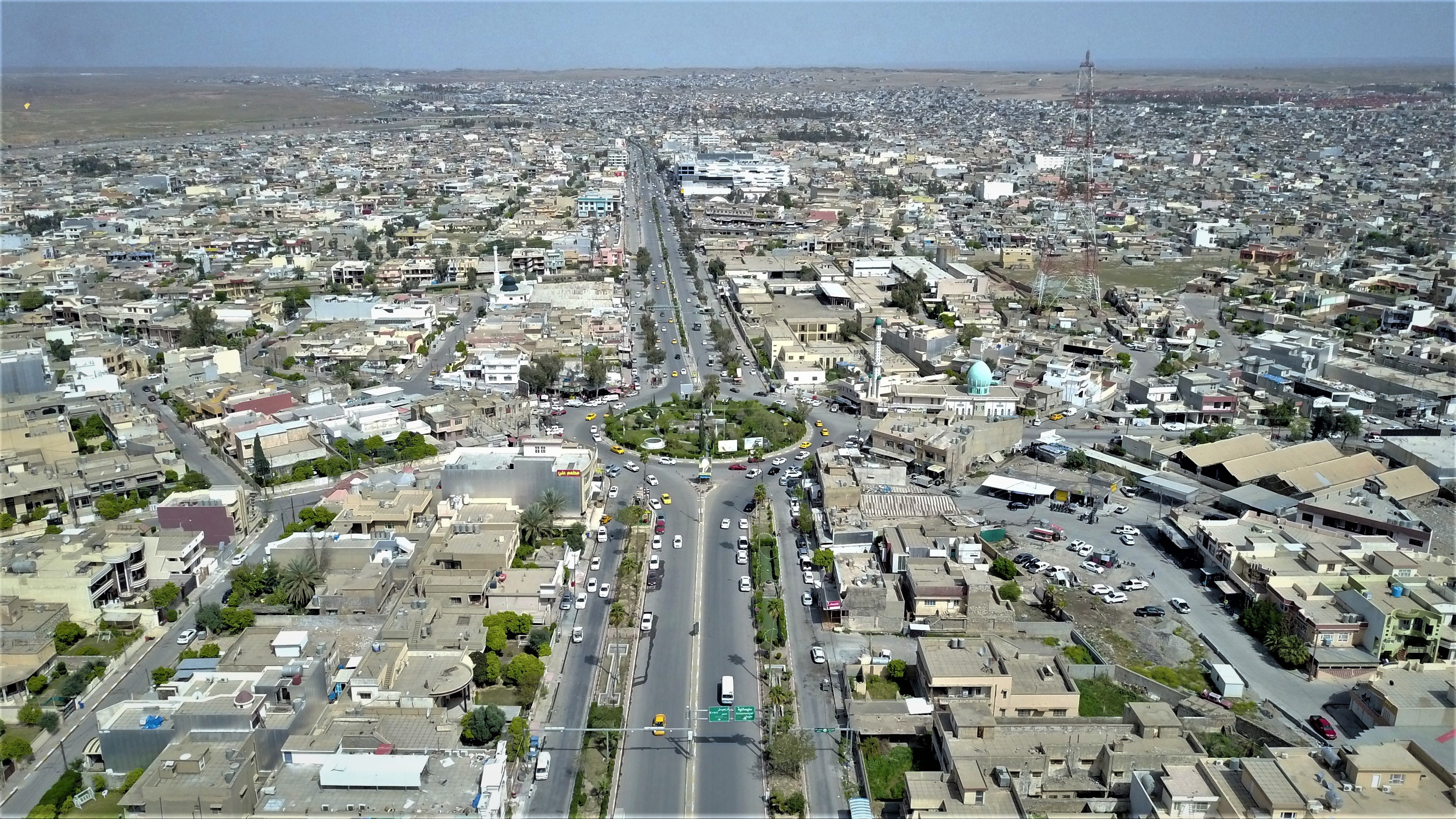The administration of Kirkuk seeks to complete the design of a strategic project in coordination with the representatives of the province in the Iraqi parliament in order to develop a master plan for the city of Kirkuk.
The project, which is still in the design phase, is made up of five stages, four already done and the fifth is in progress while its implementation on the ground requires 15 years, scheduled to be completed by 2037.
Rakan Saeed al-Jibouri, Governor of Kirkuk, discussed the masterplan project with a number of members of the new round of the Iraqi parliament in a meeting held on December 18, in order to enlist it at the top of priorities in their future parliamentary work as its implementation is to generate many job opportunities.
Gaylan Qadir, a member of the new Iraqi parliament, told KirkukNow that the provincial representatives will closely follow the strategic project and prepare and develop the masterplan of the city of Kirkuk in order to serve the citizens.
As the Iraqi parliament has blocked provincial councils, the representatives of each province undertake the task of following up and monitoring the works and projects implemented by the administrations of their governorates.
Qader says that every city must have a basic and strategic design, so that the delivery of services to all areas is included, no matter how expanded the city.
The oil-rich city of Kirkuk, pumps 2-3 million barrels a month generating hundreds of million Dollars for national revenues which 90% rely on oil marketing while the province suffers from proper basic public services in all sectors, in particular education and healthcare.
Kirkuk, Iraq’s second largest reserves, located 238 kilometers north of Baghdad, is an ethnically mixed province for 1,7 million Kurds, Arabs, and Turkmens. It has long been at the center of disputes between Baghdad and the Erbil.

Kirkuk, December 2021: A meeting of the administration of Kirkuk and a number of new representatives of the province in the Iraqi parliament to discuss a project to develop the city within 15 years. Kirkuk province administration media
The local administration of Kirkuk has signed a contract with a US company based in Jordan four years ago to draw the final layout of the city yet occupation of public property is ongoing simultaneously, local officials said.
The administration of the oil-rich city of Kirkuk hope that finalization of the city masterplan which is in the last stage could put an end to illegal building of houses, stores and districts.
One of the key challenges facing the process is the continuous campaign of using state land without permission forcing the municipality to modify its maps and plans.
Ali Hammadi, assistant governor of Kirkuk for technical affairs, said five billion Iraqi Dinars IQD (about 3.4 million USD) budget has been allocated for Kirkuk development project, indicating that four out of five stages of the project design have been completed.
The design of the project starts from Taza sub-dsitrict east of Kirkuk to the Media Restaurant on Erbil Road west of Kirkuk and another part of it starts from the popular work neighborhood in the west to the area near Al-Qalam College in Chiman, east of Kirkuk.
Hammadi explained that in addition to setting the basic design, the project will put an end to the problem of illegally built houses and slums, and will ensure better access to services to all areas of Kirkuk, and by implementing the project, a large area will be allocated for housing, and lands can then be distributed to citizens in addition to allocating suitable lands for private sector investment.
According to the statistics of the Kirkuk governorate administration, more than 61,000 buildings, including homes and others, were built illegally and randomly in the governorate.
The assistant governor of Kirkuk stressed that the project will lead to providing thousands of job opportunities for the people of the city.
Hammadi says that the new province's representatives in the Iraqi parliament will monitor the implementation of the project in the absence of the provincial council, and a joint room has been formed that includes the departments of statistics, municipality, environment and planning.
The project had been launched since 2013, but its work was halted from the beginning due to the lack of the required budget, before resuming the project in 2019.
After ousting Saddam Hussein regime in 2003, thousands of houses were built illegally all over Iraq and particularly in the disputed territories as thousands of houses; stores and even bazaars have been built on public property.





